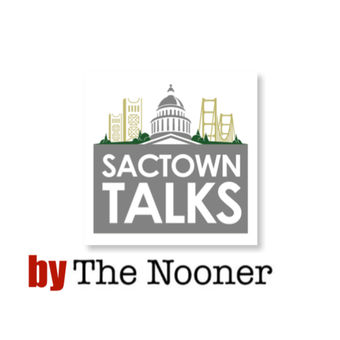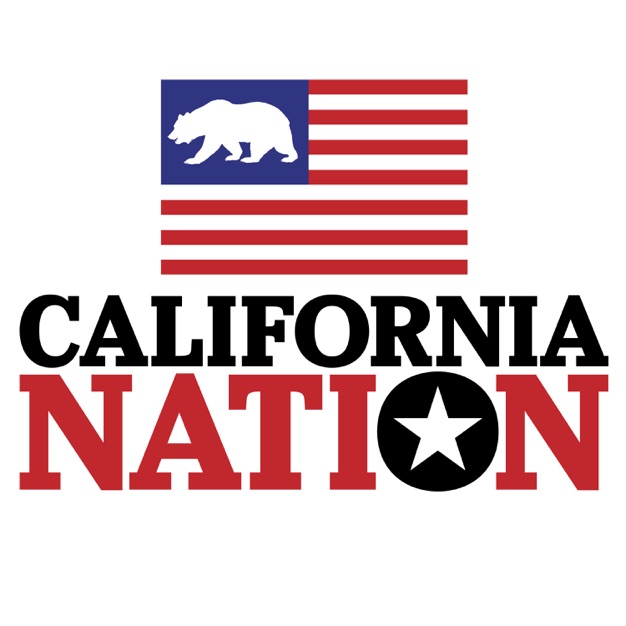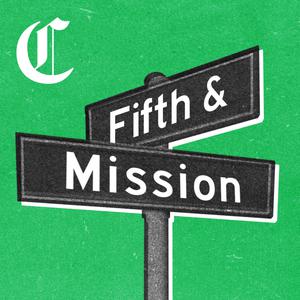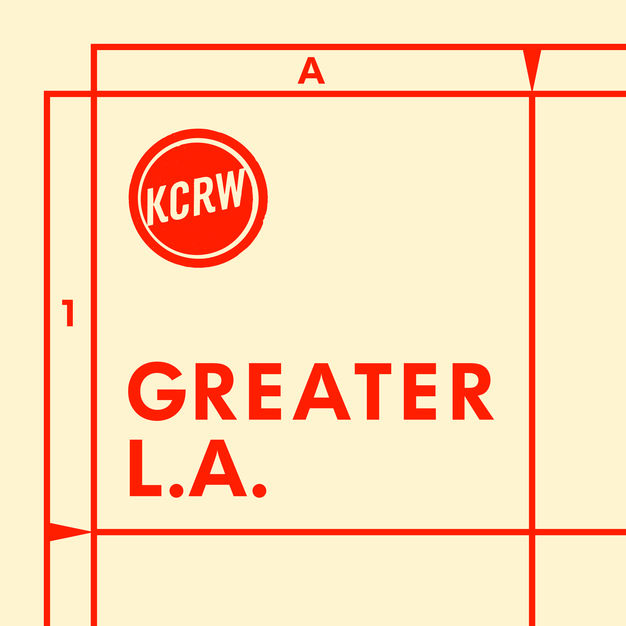
California Sun Podcast
Jeff Schechtman
The California Sun presents conversations with the people that are shaping and observing the Golden State
- 20 minutes 17 secondsJim Carlton takes us inside the inferno
Jim Carlton, reporting for the Wall Street Journal, takes us beyond the headlines and into the thick of Los Angeles’ wildfire battles. For a recent article, he embedded with a wildfire strike team in Topanga Canyon, where he witnessed the harsh realities faced by the men and women fighting flames in some of the most punishing terrain. From the relentless grind of hand crews to the life-saving precision of aerial bombardments, Carlton gives us an unforgettable look at what it takes to stand against the inferno.
20 January 2025, 10:33 pm - 25 minutes 51 secondsDavid Ulin finds hope in a burning city
David Ulin, one of Los Angeles's most perceptive chroniclers and an editor of Joan Didion's collected works, reflects on the city's unprecedented urban wildfires through the lens of history, identity, and belonging. Ulin talks about how disasters in Los Angeles paradoxically forge deeper connections between Angelenos and their landscape. Drawing parallels to 9/11 and the 1906 San Francisco earthquake, he explores how this watershed moment — with its destruction of thousands of structures across a burn area of roughly 60 square miles — may reshape Southern California's future.
16 January 2025, 8:51 pm - 39 minutes 17 secondsDaniel Ostroff explores the timeless vision of Charles and Ray Eames
From their Venice Beach studio, Charles and Ray Eames revolutionized design in post-war Los Angeles, shaping the modernist ethos of California and beyond. Known for their groundbreaking Case Study House No. 8, furniture, and films, their work seamlessly blended art, science, and functionality. In this week's conversation, Daniel Ostroff, editor of "An Eames Anthology," shares fresh insights into the married couple's philosophy and enduring relevance. Drawing from four years of curating their writings and his own work with the Eames organizations, Ostroff talks about the design team's moral vision and multidisciplinary impact in the year of the 75th anniversary of the Eames House.
9 January 2025, 6:17 am - 32 minutes 12 secondsBrewster Kahle, the internet's librarian
Brewster Kahle, founder of the Internet Archive, housed in a former San Francisco church with Greek columns that echo the ancient Library of Alexandria, discusses his three-decade mission to preserve humanity's digital knowledge and culture. Now facing unprecedented challenges, including a major cyberattack and legal battles with publishers over the site's distribution of copyrighted materials, Kahle reflects on the growing threats to digital preservation while reaffirming his commitment to universal access to all knowledge. We begin the year by looking back.
2 January 2025, 5:24 am - James Tejani examines the audacious creation of the Port of Los Angeles
James Tejani discusses his new book "A Machine to Move Ocean and Earth," which reveals the untold story of how the Port of Los Angeles was carved from 3,400 acres of marshland to become the Western Hemisphere's busiest container port. Unlike San Francisco's natural harbor, this massive engineering project defied both nature and expert opinion. Tejani explores how Civil War generals, Mexican landowners, railroad barons, and government scientists shaped the port's development. Now handling roughly $300 billion in cargo annually, the port represents both tremendous economic success and significant environmental transformation.
12 December 2024, 9:22 pm - 32 minutesJames Tejani examines the audacious creation of the Port of Los Angeles
James Tejani discusses his new book "A Machine to Move Ocean and Earth," which reveals the untold story of how the Port of Los Angeles was carved from 3,400 acres of marshland to become the Western Hemisphere's busiest container port. Unlike San Francisco's natural harbor, this massive engineering project defied both nature and expert opinion. Tejani explores how Civil War generals, Mexican landowners, railroad barons, and government scientists shaped the port's development. Now handling roughly $300 billion in cargo annually, the port represents both tremendous economic success and significant environmental transformation.
12 December 2024, 9:22 pm - 36 minutes 33 secondsJohn Francis on 17 years of silence
After a devastating oil tanker collision in San Francisco Bay in 1971, John Francis made an extraordinary decision that would reshape environmental activism. He chose to stop using motorized transportation and took a vow of silence that would last 17 years. His remarkable journey, captured in the new short documentary "Planetwalker," evolved into a profound meditation on human connection and environmental consciousness. In this conversation, we talk with Francis and the film's directors, Nadia and Dominic Gill, about a story that offers insights into how environmental activism has changed over 50 years, revealing the powerful connection between how we treat each other and how we treat our planet.
6 December 2024, 12:43 am - 31 minutes 5 secondsAaron Betsky makes the case for architectural renewal
Architectural critic Aaron Betsky challenges conventional thinking about our built environment in his new book "Don't Build, Rebuild," in which he makes the case for transforming existing structures rather than constructing new ones. From San Francisco's empty offices to Los Angeles's historic core, Betsky explores how this approach can not only address housing shortages and climate change but also preserve the soul and stories embedded in our buildings. He discusses the economic challenges, policy hurdles, and gentrification paradox while arguing that reimagined architecture can be more beautiful and meaningful than new construction, carrying within it the patina of human experience.
21 November 2024, 9:55 pm - 32 minutes 22 secondsJoe Mathews on why California must think globally, but act locally
Veteran journalist Joe Mathews offers a post-election analysis of California's future, arguing that the state's path lies not in isolation but in building global alliances — particularly at the local level. While many focus on tensions between the state and federal governments, Mathews suggests California's cities should forge connections with counterparts worldwide who face challenges from authoritarian forces. As national governments falter globally, he argues, local governance becomes increasingly crucial. Drawing from his international expertise, Mathews outlines how California's communities could learn from places all over the world.
14 November 2024, 10:17 pm - 24 minutes 45 secondsEmily Hoeven asks if Gavin Newsom can save the Democratic Party
San Francisco Chronicle columnist Emily Hoeven examines Gov. Gavin Newsom's heightened relevance following the Democrats' stunning presidential defeat. As the party searches for new leadership, California's ambitious governor seems poised to step onto the national stage. But can the telegenic leader of the world's fifth-largest economy translate his West Coast progressive agenda into a winning formula for Democrats nationwide? Hoeven offers her sharp insights on whether Newsom has what it takes to become the kind of Democrat America would embrace.
7 November 2024, 11:33 pm - 32 minutes 2 secondsElsa Devienne sifts through the sands of L.A.’s little known coastal history
Elsa Devienne takes us behind the iconic beaches of Los Angeles to reveal a hidden history of transformation, conflict, and reinvention. The author of "Sand Rush," Devienne discusses how L.A.’s shores went from eroding, polluted strips in the 1920s and '30s to expansive public spaces that defined the city’s image and culture. She details the social and political forces that played out, from the exclusion of minority communities to today’s ongoing battles over coastal access. With echoes of "Chinatown" and insights into today’s wealth-driven coastal fights, Devienne’s work helps illuminate Los Angeles' evolving identity.
30 October 2024, 9:52 pm - More Episodes? Get the App
Your feedback is valuable to us. Should you encounter any bugs, glitches, lack of functionality or other problems, please email us on [email protected] or join Moon.FM Telegram Group where you can talk directly to the dev team who are happy to answer any queries.
 SacTown Talks by The Nooner W/ Scott Lay
SacTown Talks by The Nooner W/ Scott Lay
 California Nation
California Nation
 L.A. Times Morning Briefing
L.A. Times Morning Briefing
 Force of Law
Force of Law
 Fifth & Mission
Fifth & Mission
 Greater LA
Greater LA